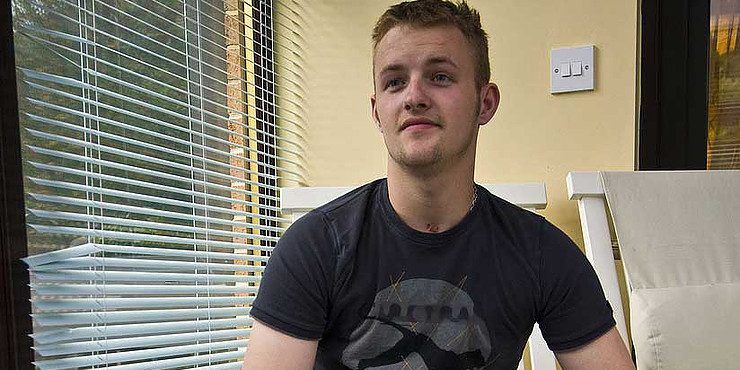)
Community treatment orders
Community treatment orders can play an important role for some service users
Controversial orders do not suit everyone, and proper support and good relationships with care coordinators are crucial, participants say.
The NIHR SSCR-funded study supports the view that CTOs, while not for everyone, can offer an important care option between detention in hospital and voluntary community treatment.
The orders, which have been used extensively since being introduced by the Mental Health Act 2007, enable people to be treated in the community provided they stick to certain conditions.
They have attracted controversy due to their uncertain effectiveness and perceived coercive qualities, and are being evaluated as part of the current independent review of the Mental Health Act.
But service users interviewed as part of the study mostly took a pragmatic view of CTOs, which they saw as a pathway out of hospital. Some also found routes into stability, supportive relationships and social activities.
“In spite of their controversy, community treatment orders offer an important space between compulsory treatment in hospitals and no order, out in the community”.
“There is a small group of people who need something to hold them, out in the community. CTOs don’t work for everyone – for some people they make no difference. But for others they offer the stability to have a pause and, although they may not like it, their medication makes them well enough to see things more clearly and make their own decisions to manage.” Dr Julia Stroud of the University of Brighton, the study’s principal investigator.
Medication fears
The study, which was conducted at the University of Brighton in collaboration with Sussex Partnership NHS Foundation Trust, combined quantitative analysis of data on CTOs with service user and mental health practitioner interviews.
National data revealed that around 4,500 CTOs are made in England each year.
Within the Sussex study area, meanwhile, 340 CTOs were made between 2013 and 2015, with a majority of recipients being male, single and unemployed.
Recruiting service users for the interview element of the study proved a challenge, and researchers acknowledged that it was possible only those with more positive views of CTOs became participants.
While service users disliked medication because of side-effects, a few acknowledged that they had developed an awareness of its place in managing their mental illness.
Supportive relationships
Both professionals and service users said they had experienced positive and supportive relationships in the context of CTOs – which may well not have developed in the absence of an order. The study concluded that such relationships appeared to be a crucial component of making a CTO work well.
“This engagement can be understood as an important social intervention, providing support and militating against isolation,” the study found. “The stability which emerges for the service user provides a platform from which to access social activities, relationships and recovery.”
Practitioners interviewed said they had put considerable effort into supporting service users and engaging them in social activities, while service users also described participating in wide-ranging activities – some of which were self-organised.
While both groups of interviewees considered CTOs to mostly hinge on compliance, social factors were also considered in decisions around discharge, renewal and recall. Just over half of practitioners said positive social activities were a very or extremely significant factor in deciding whether to discharge someone.
“The dominant discourse is about compliance and medication … If aspects around relationships and support could be brought to the fore, maybe CTOs would work a bit better.” Dr Julia Stroud
‘More debate’ over recalls
With renewals and recalls commonplace, the study suggested that greater understanding of the reasons why need to be sought – as well as further debate as to whether recalls should be used to define the success or failure of a CTO.
“If you have mental ill-health it’s not stable – someone can do everything right and still relapse … To go back to hospital for few days, get things adjusted and stabilised, that need not be a failure.”
“There needs to be move away from readmissions as a criteria for success, and towards thinking about the quality of life for someone on a CTO, and how the order can improve that.” Dr Julia Stroud
Full summary findings
NIHR SSCR (2018) Social Factors, Care and Community Treatment Orders. Service User and Practitioner Perspectives, Research Findings 84, NIHR School for Social Care Research, London.
Further information
This study funded by the NIHR School for Social Care Research and led by Dr Julia Stroud at the University of Brighton.
















